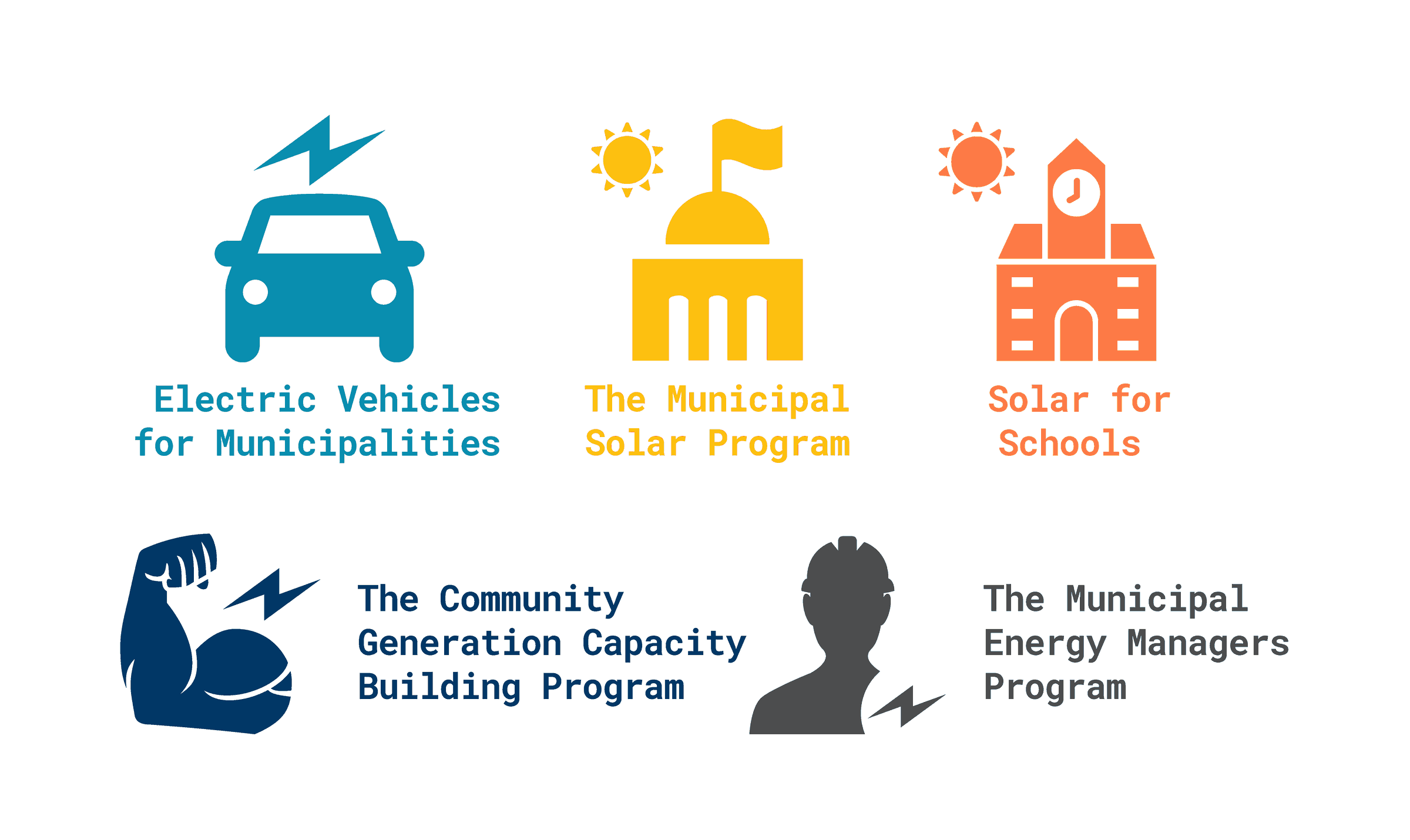
Alberta’s Municipal Climate Change Action Centre (MCCAC) supports Alberta municipalities in reducing their greenhouse gas emissions for the purposes of addressing climate change. When the organization received funding to offer grant-based programs to municipalities, staff turned to Dunsky to help them develop the programs they planned to deliver.
As part of our work, the Dunsky team developed the following programs:
- Electric Vehicles for Municipalities provides financial incentives for municipalities to conduct feasibility studies and purchase electric vehicles and charging stations for their fleets.
- The Municipal Solar Program provides financial rebates to municipalities when they install grid-connected solar PV systems and complete public engagement activities; and
- Solar for Schools provides financial rebates to public schools when they install solar PV systems and complete student engagement initiatives.
In addition, we helped MCCAC frame the direction for the following programs:
- The Community Generation Capacity Building Program offers funding for municipalities wishing to build capacity to develop or participate in community generation projects; and
- The Municipal Energy Managers Program supports municipalities in reducing GHG emissions through energy efficiency projects in their facilities and operations by providing funding towards the salary of a dedicated (or shared) in-house Municipal Energy Manager.
These programs have all been launched and provide financial rebates or other support for implementing projects that lower GHG emissions from fleet vehicles or energy use in buildings and facilities, and by increasing renewable energy generation. This financial support enables municipalities to reduce their emissions and lower their energy bills, and in some cases leverage additional funding opportunities. For example, in the Electric Vehicles for Municipalities program, cities and towns can apply for both the MCCAC and federal incentive programs, freeing up critical resources to invest in additional climate-change mitigation projects. This increases the financial payback and maximizes climate-change mitigation efforts, which is a win-win for both the municipalities and the environment.


